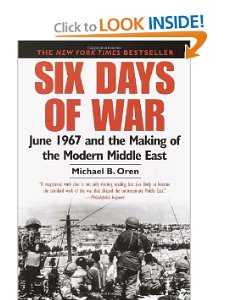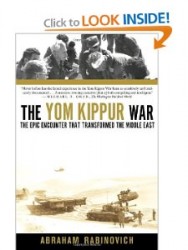Do you ever take the time to complete an in-depth study of an issue you desire to become better informed about? I do.
My apologies to the authors and publishers who have sent books for me to review during the last several months – I’ll get to those too. I have just been a bit busy.
I have just completed a study of 1,524 pages in three books:
I did a lot of research before I selected the texts for reading. I began with 1948 – The First Arab Israeli Conflict by Benny Morris (Yale University Press 2008 – A Winner of the National Jewish Book Awards). This book begins in the 1880’s with the arrival of the first Jewish immigrants in Zion – yet goes back to 1200 BCE and moves quickly forward through the U.N. Resolution in November 1947 — and the first 20th century Arab Israeli Conflict beginning in May 1948…a far reaching treatise that weaves exquisite detail and the essence of human and socio-political considerations into a marvelous narrative. I highly recommend this book.
The second text I devoured is authored by Michael B. Oren ( Ballantine Books, NY — Random House 2002) entitled Six Days of War – June 1967 and the Making of the Modern Middle East. This treatise traces the relationships between Arabs, Israelis and “The Great Powers” from 1948 through the War (June 5 through June 10 1967)….a triumph for the preparation and strategy employed by the IDF. Again, a magnificent work.
Finally, I digested The Yom Kippur War – The Epic Encounter That Transformed The Middle East by Abraham Rabinovich (Shocken Books, New York 2004). This is primarily a “war book” – focusing on military strategy – yet includes the essential human and geo-political insights that served to shape the historical context, and the outcome.
Of all three, I believe I enjoyed The Yom Kippur War by Abraham Rabinovich the most…populated with the names of Golda Meir, Dayan, Sharon, Begin, Kissinger, et al. Yet, the demonstration of courage in the face of certain death by so many – was – for me – shocking (for lack of a more poignant term).
Bottom Line for me after completing this study (it will take me several decades to “digest” the meanings that will continue to resonate through me):
1. War requires humans to choose war. People(s) whom war is being waged against, must protect themselves.
2. Lives are lost. Innocents are slaughtered. Resentments and hatreds are fanned into new forms of flame.
3. Human belief systems (senses of prejudice, bigotry, justice, fairness, intolerance, fear and the like) are the source and perpetuating agents of conflicts of this nature.
4. People are quite willing to die in an attempt to preserve their belief systems. An unfortunate characteristic of homo sapiens that continues to persist in our age – despite the sordid centuries of evidence imploring us to find a better way to resolve our conflicts.
5. Wars require resources…typically provided by those who are NOT directly involved in the conflict — yet possess purported “strategic geo-political interests” in providing the weapons…for a price…War is big business.
6. Fear…resentment…revenge…are all sewn into a garment of rationalization that cloaks the evil beneath the outward appearance.
May hearts swollen with the desire for peace triumph over minds infected with malicious motivation. For war, is not the better way for the Middle East… Yet, evil lurks – awaiting the opportunity to thrust itself on the unsuspecting, inattentive and naive.
I have no answers…I come away with many, many more questions – after completing this study. And a sadness…along with a profound sense of determined hope for the better way that seems to continue to elude our species.





